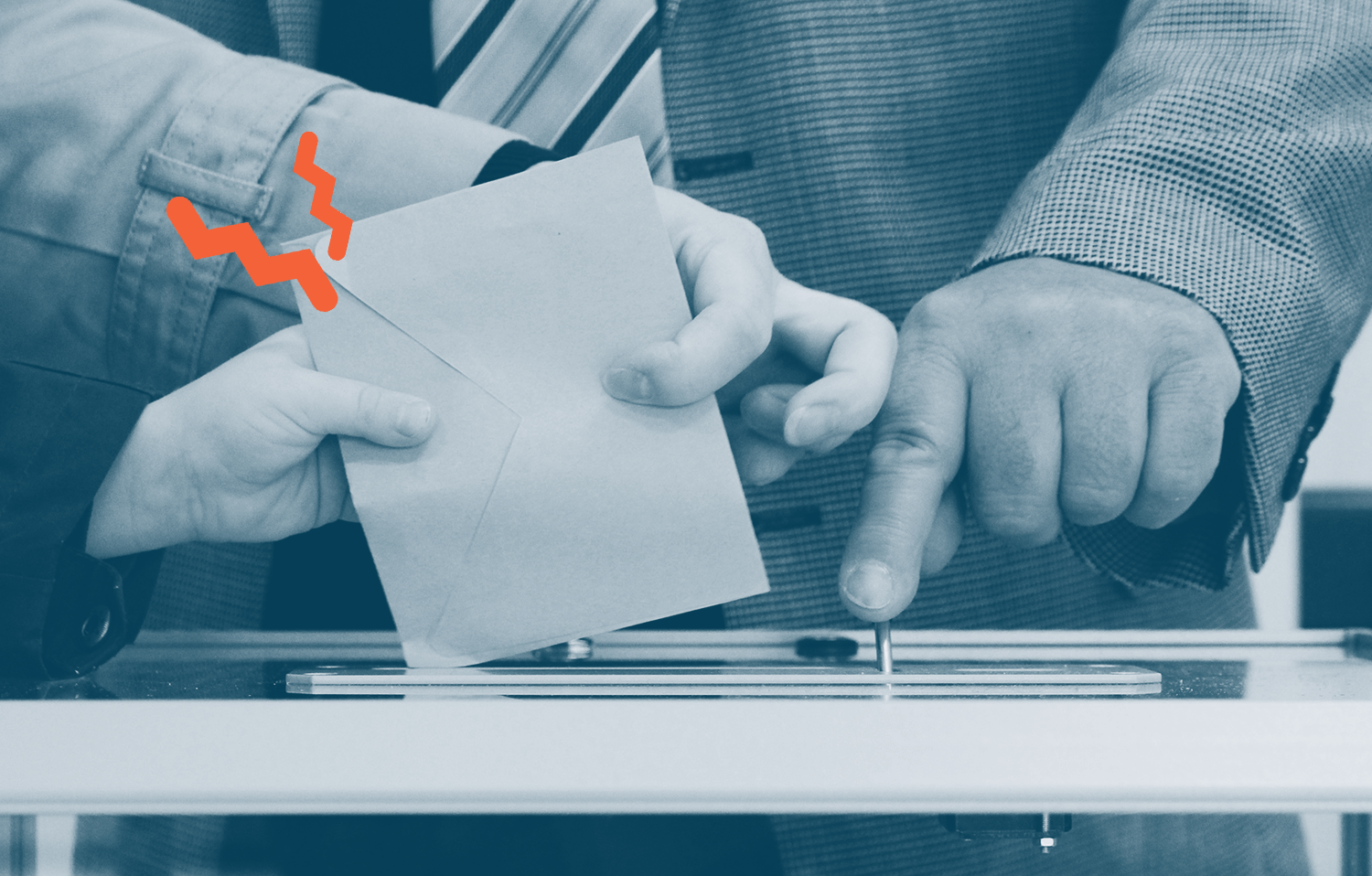
Welcome to the e-lection
For years now, we have seen how our use of online technology has affected elections all over the globe.
Last year, we saw how the spread of fake news helped Trump get elected into power. We also saw how propaganda and messages of fear, spread on social media, helped sow division and caused Brexit to pass.
This year, it’s a snap election. On the 18th of April, Theresa May – the current sitting Prime Minister – called an election and, as a result, we’ve seen a scrambling from every party to try and get their messages out on every channel available – including digital ones.
But how exactly are they doing it? And who’s succeeding?
Facebook is incredibly targeted and tailored. We know that the level of granularity you can get with Facebook Ads is incredible, so it would make sense that political parties are looking to leverage this to win votes.
Despite spending being monitored in other areas of campaign expenditure, there are no spending limits on money spent on digital ads. This means that the parties with deeper pockets can have a stronger voice on digital channels.
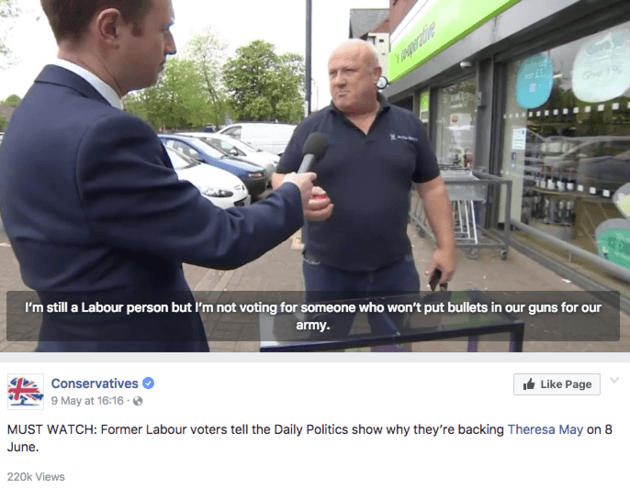
During the 2015 election, we saw the Conservatives spend about £1.2m on Facebook ads, compared to Labour’s £160,000. However, this time they’re stepping their game up and it looks like the Labour party are looking to spend around £1m.
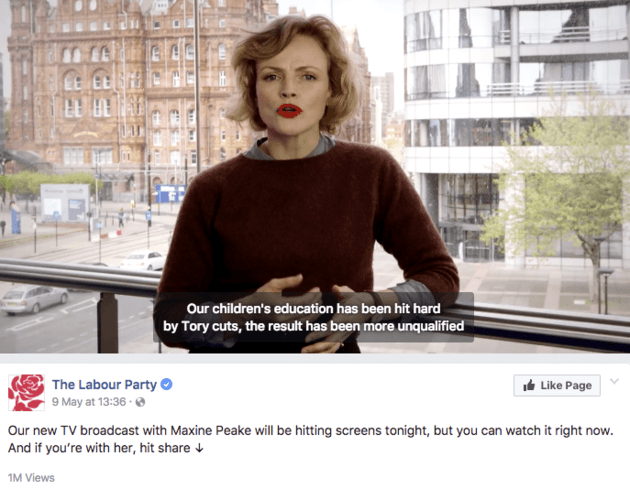
However, this has caught the eye of the Information Commissioner’s Office (ICO), who have announced that they will be looking into this use of Facebook ads. The investigation will centre on whether political parties are breaking the law by targeting voters with personalised adverts.
The fact that the Conservatives are refusing to disclose the content of these ads to the ICO seems to indicate that they know their own wrongdoing. As Facebook is a closed system, this means that only the Conservatives and the people who are served the ads truly know what the ads say.
But Facebook isn’t the only battleground for the 2017 election. This time, the Conservatives have their sights firmly set on the next stage in online election campaign tactics – baby Facebook.
That’s right, the Conservatives have been pushing Instagram ads onto the newsfeeds of potential voters.
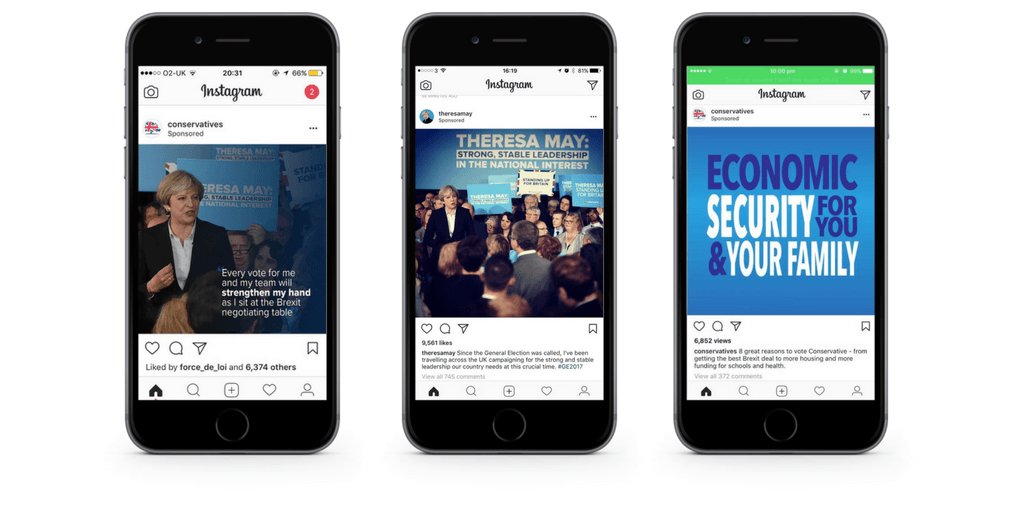
Although we have to say, it’s not working overly well…
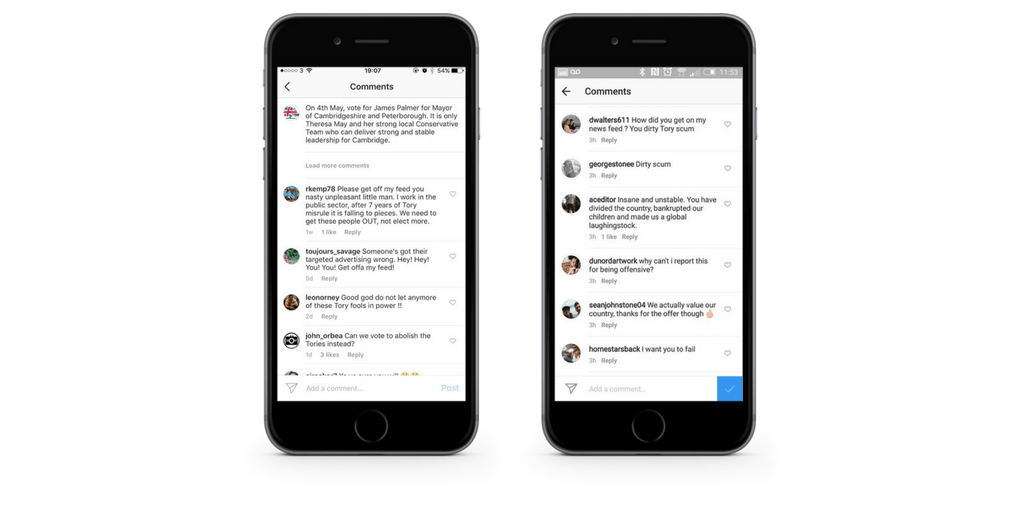
Not exactly the response they were hoping for, I imagine.
PPC
We’ve also sometimes seen parties buy PPC ads on Google – but this is the first year that it has really been brought to light.
Just a few days after announcing the hugely controversial ‘Dementia Tax’, the Conservative party were seen to be buying up AdWords space for the term. Their intent was obvious, to try and educate people who were looking for news about it.
However, it backfired horribly once larger news outlets saw what they were up to.
Not entirely sure that this was the plan.. pic.twitter.com/ahoCNXb4Yt
— Nearly Legal (@nearlylegal) May 22, 2017
(Although we’d like to point out to The London Economic that buying ads on Google isn’t really hijacking…)
What is most unusual about the ad is the fact that the Conservatives are acknowledging the term ‘dementia tax’, which is a term that was first used by the Labour party to refer to the plans.
In the days closer to the election, the Conservatives have upped their usage of PPC ads. They’ve been bidding on terms like “liberal democrats”…
Oh my days. The @Conservatives #PPC campaigns are getting further rediculous. I smell worry – thanks for the heads up @eugenehenry84 pic.twitter.com/VOTnwgN1ZP
— Kevin Cooper (@kevismename) June 1, 2017
However, the fact that there is no limit to digital campaign spending means that parties will be taking full advantage of digital channels in the future – especially as they begin to wise up to what digital can really bring to the table.
No doubt as millennials start to take more interest in politics – not that they don’t already – political parties will have to find new ways to reach them, and that means going digital.
Irrespective of what happens on June 8th, we can be assured that tactics like this will only get worse (or better?) as time goes on.
